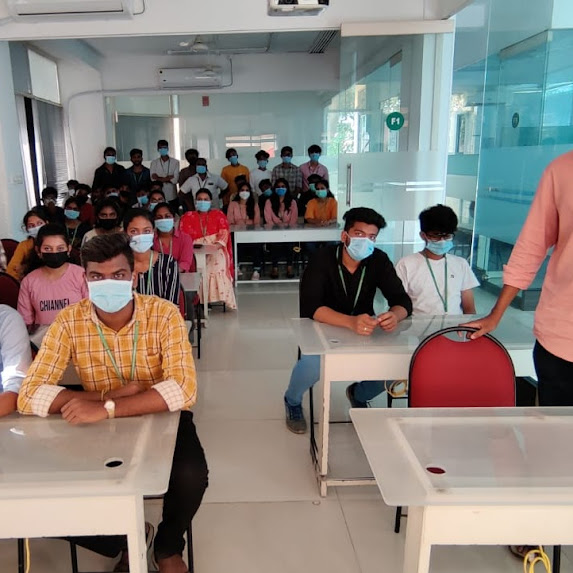SOC Analyst Training by Experts
Our Training Process

SOC Analyst - Syllabus, Fees & Duration
Introduction to Cybersecurity
- Basics of cybersecurity
- Common cyber threats and attack vectors
Networking Fundamentals:
- Understanding TCP/IP
- Network protocols
- Firewalls, routers, and switches
Operating Systems
- In-depth knowledge of Windows, Linux, and possibly macOS
- File systems and permissions
Security Technologies
- Antivirus and anti-malware solutions
- Intrusion detection/prevention systems (IDS/IPS)
- Security information and event management (SIEM) systems
Incident Response
- Incident detection and analysis
- Incident classification and escalation
- Incident documentation and reporting
Threat Intelligence:
- Understanding threat intelligence
- Integrating threat intelligence into daily operations
Security Monitoring:
- Log analysis
- Network traffic analysis
- Endpoint security monitoring
Vulnerability Management
'- Identifying and prioritizing vulnerabilities
- Patch management
Security Policies and Compliance
- Understanding security policies and procedures
- Compliance standards and regulations
Hands-on Labs and Simulations
- Practical exercises & simulations for real scenarios
- Use of cybersecurity tools in a controlled environment
Soft Skills
- Communication and collaboration
- Analytical thinking and problem-solving
This syllabus is not final and can be customized as per needs/updates





 The duration of SOC analyst training programs in Ras Al Khaimah can vary based on factors such as the depth of content, the training format (full-time, part-time, online, on-site), and the prior experience of participants. Threat Intelligence Analysis:Stay informed about current cyber threats and trends. Industry-recognized certifications, such as CompTIA Security+, Certified Information Systems Security Professional (CISSP), or Certified Ethical Hacker (CEH), may also be part of the training or pursued separately in Ras Al Khaimah . Industry-recognized certifications, such as CompTIA Security+, Certified Information Systems Security Professional (CISSP), or Certified Ethical Hacker (CEH), may also be part of the training or pursued separately. The specific duties and responsibilities of a cybersecurity analyst can vary depending on the organization's size, industry, and the complexity of its IT infrastructure. Vulnerability Assessment:Conduct regular vulnerability assessments to identify weaknesses in the organization's systems and networks. Security Audits and Assessments:Conduct security audits and assessments to evaluate the effectiveness of security controls. Make recommendations for improvements based on audit findings. Use security information and event management (SIEM) tools to analyze logs and detect anomalous activities. Their primary goal is to safeguard digital assets, sensitive information, and ensure the continuity of business operations.
The duration of SOC analyst training programs in Ras Al Khaimah can vary based on factors such as the depth of content, the training format (full-time, part-time, online, on-site), and the prior experience of participants. Threat Intelligence Analysis:Stay informed about current cyber threats and trends. Industry-recognized certifications, such as CompTIA Security+, Certified Information Systems Security Professional (CISSP), or Certified Ethical Hacker (CEH), may also be part of the training or pursued separately in Ras Al Khaimah . Industry-recognized certifications, such as CompTIA Security+, Certified Information Systems Security Professional (CISSP), or Certified Ethical Hacker (CEH), may also be part of the training or pursued separately. The specific duties and responsibilities of a cybersecurity analyst can vary depending on the organization's size, industry, and the complexity of its IT infrastructure. Vulnerability Assessment:Conduct regular vulnerability assessments to identify weaknesses in the organization's systems and networks. Security Audits and Assessments:Conduct security audits and assessments to evaluate the effectiveness of security controls. Make recommendations for improvements based on audit findings. Use security information and event management (SIEM) tools to analyze logs and detect anomalous activities. Their primary goal is to safeguard digital assets, sensitive information, and ensure the continuity of business operations.



















































































